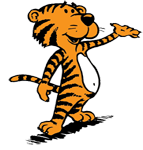4th Grade Newsletter
February 9, 2021
Language Arts
What are we learning?
- The fourth grade has been reading and analyzing Functional Texts. These are texts that give directions, such as how to make a ball toss game out of milk cartons, announcements, such as upcoming art shows and how to enter, or recipes that give step by step directions.
- Beginning February 16, we will be exploring poetry. Students will read and discuss poetry and how poetry is written. We will look at different styles of poetic form and how poets use language to convey meaning.
Home/School Connection
- What is the main reason the author wrote the (flier, advertisement, etc.)?
- What is the main idea of this (flier, advertisement, or set of directions)?
- Which of these questions can be answered in this section?
- What is the BEST way the reader can use this (flier, advertisement, or set of directions)?
- Which question can be answered in this (flier, advertisement, set of directions)?
- What are you thinking about?
- What are you visualizing? (picturing in your mind)?
- What are you feeling?
- What poetic tools do you notice? What effect does that have on the reader (e.g., mood, meaning)?
- What poetic tools are you using? What effect do you hope they have on the reader (e.g., mood, meaning)?
- How do the poetic tools or organization contribute to the deeper meaning?
Math
What are we learning?
We will be continuing our decimals unit! Throughout this unit we will...
- Read, write, represent, and identify decimals expressed through thousandths
- Round decimals to the nearest whole number
- Compare and order decimals
- Given a model, write the decimal and fraction equivalents
- Add and subtract with decimals
- Solve single-step and multistep practical problems involving addition and subtraction with decimals
- Recognize and demonstrate the meaning of equality in an equation
Home/School Connection
- What have you learned about decimals?
- What do you notice about the coins and their values?
- How can we use decimals in our everyday life?
- Can you represent money ($1.50, $2.50, $3.75) in multiple ways? What coins can you use? What different values can you use?
- How are fractions and decimals similar?
- Can you find the equivalent fraction of (insert fraction here)?
- How are you feeling about...
- decimal understanding?
- Comparing decimals?
- Different strategies for comparing decimals?
Science
What are we learning?
- Electricity is used every day. Humans transform electrical energy into different forms of energy to meet their needs.
- A closed circuit allows electricity to flow within the circuit. If there is an opening in the circuit, electricity will not flow.
- A simple circuit consists of a bulb, battery, and wire.
- Static electricity is the transfer of negatively charged particles between materials. Common examples of static electricity include lightning, clothes sticking together when coming out of a dryer, and getting a shock when touching a door knob.
Home/School Connection
- What is potential energy? What is kinetic? How do these change?
- How does a light switch work? What is open and closed in the circuit?
- How can you create static electricity?
- How can your parents avoid it when pumping gas?
- How is lightning static electricity?
Social Studies
What are we learning?
We will begin our Revolutionary War unit. In this unit we will…
- Identify reasons why the colonies went to war with great Britain, as expressed in the Declaration of Independence
- Identify various roles of American Indians, whites, enslaved African Americans, and free African Americans in the Revolutionary war era
- Learn about the roles that George Washington, Thomas Jefferson, Patrick Henry, the Marquis de Lafayette, James Lafayette, Joseph Harris and Sarah Osborne played
- Identify the importance of the American Victory at Yorktown
- Explain the reasons for the relocation of the Capital from Williamsburg to Richmond
Home/School Connection
- How do people create lasting, positive change? How do you make positive changes?
- When conflict occurs, how do people decide what to do? What would you do if you had a conflict with a friend, family member, or other?
Positivity Project
- Students show love by building relationships with others!
- Talk about it! Ask your child about love!
- How would you define/describe love?
- Who are 3 people you love?
- How can you show those people you love them?
- How might others show love? How is this different or similar to how you show love?
Online Learning Tip
- Learners may become distracted or bored by online learning, this is very common! By working to eliminate distractions, students can stay focused and on task!
- By setting aside time for social media or games later in the day, students can focus on school during school hours, eliminating distractions during the school day!
- By sitting in a room without a TV or phone, students will be able to focus on the lesson, eliminating distractions!
- By creating a list of what students should look/sound like will help them know what you expect when you check in on them during the day.
- Looks like/sounds like ideas - focused on the computer, no phones, no electronics, chatting with peers, talking with teacher, collaborating, sharing appropriately, etc.

